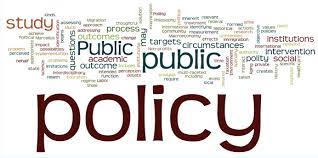
Introduction
The government servants often face the critical question of designing an appropriate policy, and implementing the same effectively, which is evidence based.
In recent times, the government organizations have been asked to do more with less. A Gradual declined budget has forced the local and state governments to reduce support staff with increased workloads.
A reduction in support staff and decreased revenue has in many ways altered the nature of public service relative to trained public administrators. Public organizations rely heavily on accurate data to make timely decisions regarding budgets, public policy, program implementation and general organization priorities.
In order to accomplish these objectives, public administrators must quickly collect, analyze and interpret data for an effective administration.
This capacity development programme will be useful for the public servants to understand the nuances of the quantitative management for the policy formulation.
Uniqueness of the Programme
The programme is designed on the basis of past experiences of interaction with the senior administrators. The topics have been included as per the need and the expectation of the previous participants.
Hence, the programme is updated and covers the contemporary issues of policy designs and analysis.
The course is intended as a comprehensive introduction to the research softwares, viz. SPSS and ATLAS.ti for analysis of the qualitative and quantitative data. How to interpret the software generated output to answer the research questions will be covered in the elective course. The prime objective of the course is to facilitate the scientific decision making in Public policy.
Outcomes of the Programme
After completing the programme, the participants will have a clear understanding about the following and would be able to take conduct the public policy research,
Tentative Dates
September20-25, 2021
February 21-26, 2022
Andragogy
The classroom interactions are amalgamation of lectures, case study, and peer discussion. Participants are expected to share their views and experience during the interactions. The participants required to submit the assignment during the course, which will be evaluated by the course coordinator and feedback will be provided.
FAQ
The topics that are required for Descriptive, Diagnostic, Predictive and Prescriptive Analytics are being covered in the course. The topics ranges from data visualization, data classification, forecasting techniques, Root Cause Analysis (RCA), diagnostic checks on the data.
The course has three modules. Module I comprises of data analytical techniques enabling the quantitative data and the Module II covers the analytical tools designed for the qualitative data. The sessions will be held in the Computer lab, with a hands on experience on the same. The real time dataset will be used for a better understanding of the problem and its probable solution. The case studies will be used, but not limited to the country specific. The global cases will be dealt in the class to get a sense of the international practices of data analytics by the administrators. The Module III deals with the role of data analytics in Decision under certainty.
There are no pre requisites to join the programme. However, the participant has to participate in the case study discussion.
|
Sr. No. |
Module number/Session theme |
Topic |
Readings |
|
1 |
Module I Exploratory Analytics |
Data Aggregation for policy evaluation |
Essential Readings |
|
2 |
Descriptive analytics |
Review and Recap |
Essential Readings
|
|
3 |
Predictive analytics |
Review and Recap Measuring impact of the policies |
Essential Readings
|
|
4 |
Predictive analytics |
Review and Recap |
Essential Readings
|
|
5 |
Module II Text Analytics |
Introduction to Atlas ti 8 |
Essential Readings |
|
6 |
Module III Prescriptive Analytics |
Review and Recap
|
Essential Readings |